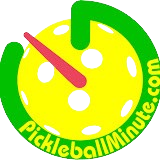Emerging research highlights pickleball as a potent, enjoyable intervention for the mental health crisis in America, with regular players reporting 60% fewer depressive symptoms. The sport uniquely combines physical exercise, social interaction, and cognitive engagement, triggering a beneficial neurochemical mix that enhances mood and reduces anxiety. Its accessibility and smaller court size foster social connection, combating loneliness across all age groups. Youth benefit from confidence-building and social skills in a low-pressure setting, adults experience stress relief through focused “active meditation,” and seniors gain cognitive protection and social engagement, with studies linking racket sports to lower dementia risk.
Unlike traditional therapies, pickleball offers a “stealth intervention” where mental health improves through fun and community rather than clinical treatment. Research shows a dose-response effect, with more frequent play correlating to better well-being. Practical strategies include community programs, family bonding through intergenerational play, and workplace wellness integration. As evidence grows, mental health professionals are beginning to prescribe pickleball alongside conventional treatments, signaling a shift toward holistic, enjoyable approaches to psychological wellness that are accessible and affordable for all.


